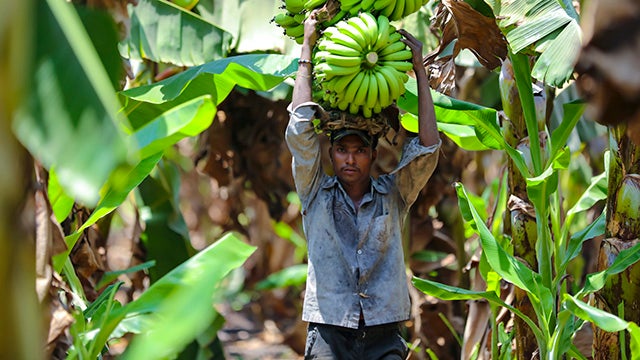This post originally was published in the Huffington Post
The open windows on the second floor of the Mandaley farmers’ association office do nothing to ease the unbearable heat of a balmy Mandaley afternoon in Burma. No breeze to speak of. But that doesn’t keep over 60 local farmers, business owners and entrepreneurs from a lively exchange as they inspect and dissect with their hands a Prakti clean cook stove. In 10 minutes, the conversation shifts from how the stove helps reduce fuel consumption and hazardous smoke into “how much does it cost?” “Can I buy 20 units and sell them here?” “How can we produce these in Burma?” — The wheels of entrepreneurship are turning. This is how businesses start.
Burma is undergoing a historic transformation towards democracy. The hardships and complexities of such a transition were made abundantly clear to us after meeting with opposition leader Daw Aung San Suu Kyi, top government officials, local business leaders, entrepreneurs and farmers. What was also very clear is that there can be no sustainable democratization without improvement to the quality of life of the Burmese, and there cannot be economic development without sustained democratization. In Burma, the two are absolutely intertwined.
U.S. Secretary of State, John Kerry, is making his way to Burma this week, for the ASEAN Regional Meeting. When it comes to Burma, Secretary Kerry needs to advance two-sets of policies that require a delicate balance. First, he must continue to apply pressure on the Burmese government to ensure that political reforms advance and ethnic violence subsides. And second, he needs to focus on programs that improve the quality of life for Burmese people through economic development.
To that end, two months ago, Governor Richardson’s Center for Global Engagement, the Aspen Institute and the U.S. Department of State took a group of social entrepreneurs and impact investors with us to Burma on a Partnership Opportunity Delegation. These delegations aim to lower the barriers to engagement and entry for small and medium companies and investors into markets like Burma. When designing the delegation, we follow the priorities set by the community we are engaging. In Burma, we focused on social enterprises aimed at providing safe water distribution tools (Wello Water), clean and safe cook stoves (Prakti), fortified rice production (Malo), education through low-cost mobile phones (Eneze), and Micro insurance (M3RI).
Our meetings in Yangon, Mandaley and NayPyiTaw, provided us with two complimentary insights regarding the efforts we need to focus on.
First, in Burma, just like in the United States, small businesses will be the engine of job creation and economic growth. We found the Burmese people to be extremely entrepreneurial in nature. Many have their own home businesses, yet they operate in an environment that denies them access to small loans, and dis-incentivizes them from growing their businesses.
Both the government of Burma and the international community seem to be pre-occupied with foreign direct investments and multinational corporations. And while these are important and attractive, home and small businesses have very different needs. They need access to small and medium lending; they need simple and feasible registration processes; they need passageways to bring in products, material and equipment in and out of the country — to name a few. None of these have been addressed to-date.
Second, social enterprises hold tremendous potential for healthy growth in Burma. Using our contacts and credibility, we set up meetings with top ministers and government officials. But unlike typical government meetings, we had our entrepreneurs bring their products and showcase them at the meetings. These ministers very rarely — if at all — meet with social enterprises or small businesses. But when they saw the products, they realized that these answer real challenges they themselves face every day. The clean cook stoves can help their family save money and lives. The water wheel can help their brother’s farm.
Quickly, the meetings turned into lively exchanges of how to get these into the local markets and start local production. Meeting with local business leaders and entrepreneurs, the conversations turned into business interests and partnership development.
At least three of the social enterprises that came have already begun to engage with the local market. It will take some time, and it will be challenging, but the personal relations we established, will allow us to endure the challenges.
Social entrepreneurs work in tough environments around the world. Lack of political stability and infrastructure do not deter them. They thrive when faced with challenges and uncertainty. These attributes make social entrepreneurs the best bet for economic growth in Burma. We believe we cracked open the door. We now need to focus our efforts in widening this opening.
Successful political reform in Burma relies on Burmese people seeing the benefits of democratization in their daily lives. So while we continue to apply pressure on the political track, we must not neglect, and in fact enhance, our efforts on economic growth, particularly for home and small businesses.

